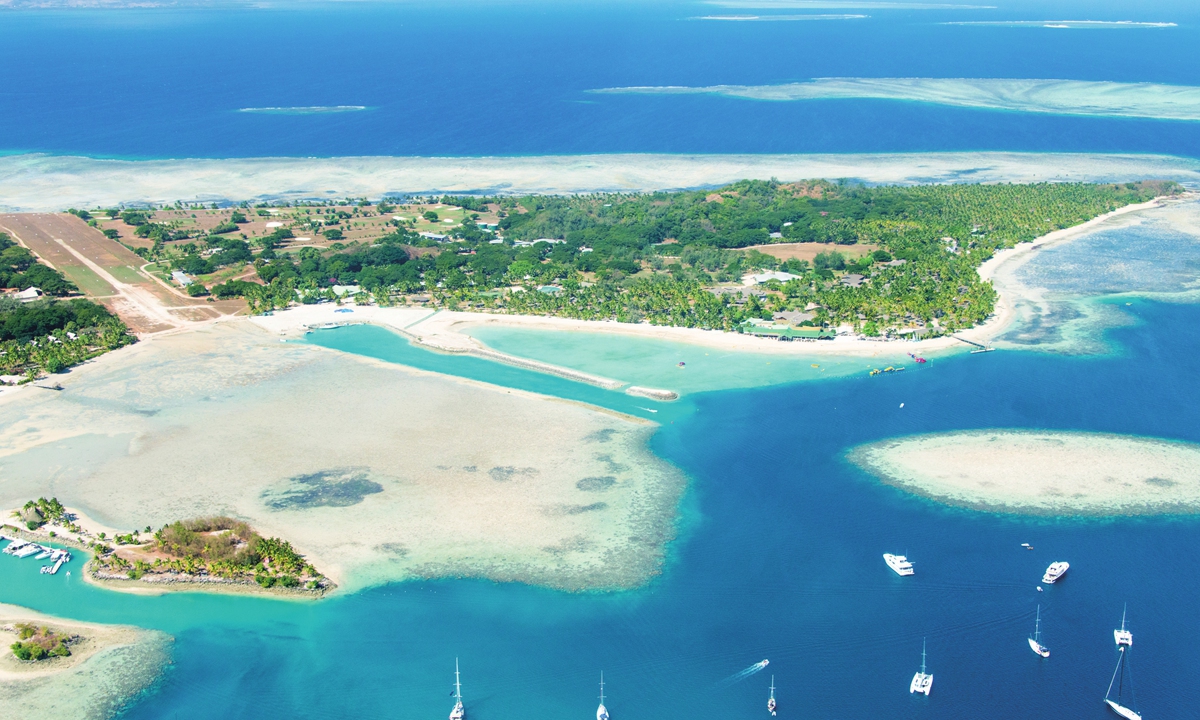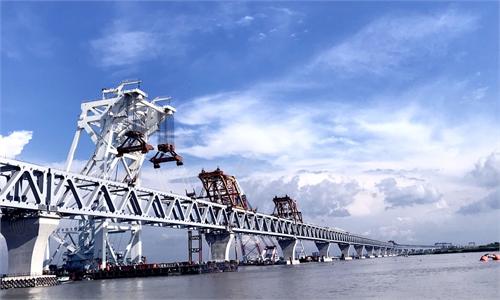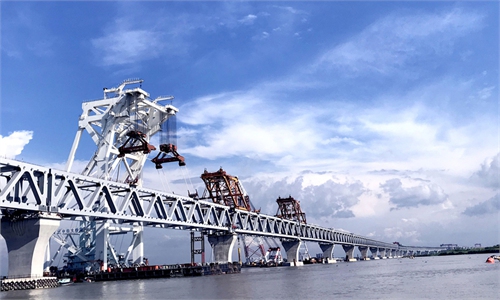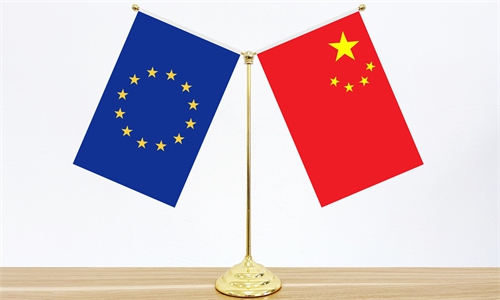
A view of a beach in Fiji Photo: VCG
Fiji's Prime Minister Sitiveni Rabuka is in China for a 10-day visit. He is another Pacific Island leader invited to visit China this year, reflecting China's close ties with the South Pacific region and highlighting China's active interest in Small Island Developing States (SIDS).As the impact of climate change intensifies, the development challenges of SIDS have received increasing attention from the international community. At the same time, as the global geopolitical tensions have escalated in recent years, SIDS are also inevitably involved, especially when some Western countries have dragged them into the geopolitical game against China. However, China has taken actions based on the Global Development Initiative (GDI), understanding and valuing the special needs of SIDS, and is committed to realizing common development with SIDS on the basis of mutual respect.
At the 1992 United Nations Conference on Environment and Development, SIDS were recognized as a special case for both their environment and development. Since then, the world has been committed to assisting these countries in achieving the goals of sustainable development. After more than 30 years of development, SIDS continue to face many problems in realizing sustainable economic and social development due to their natural vulnerabilities.
Therefore, urgent attention and support from the international community are needed to address these issues.
First, SIDS are facing environmental problems. Most of these countries are extremely vulnerable to natural disasters, such as land degradation, desertification, floods, droughts and coastal erosion. Additionally, the rise in sea levels due to global warming poses the most urgent environmental threat to the survival and development of the people of SIDS.
Second, there is the issue of economic structure. In general, SIDS are geographically remote, with a highly dispersed population. They have limited economies, a non-diversified industrial structure and are highly vulnerable to natural disasters. These factors determine the degree of vulnerability of their economies, which are highly susceptible to external market influences and lack the necessary resilience to respond to external economic crises.
Third, SIDS are struggling with the inability to fully exploit energy and resources. Many SIDS have abundant reserves, such as offshore oil and gas, ore resources, wind energy and solar energy. However, owing to insufficient technology and funding, these resources have not been effectively developed, thus hindering the economic and social development of SIDS.
Furthermore, these countries are facing challenges in social governance. Constrained by their level of economic development, most SIDS lack financial resources in crucial areas such as social security, healthcare and education. This lack of resources hinders their ability to enhance resilience to external shocks, promote social equity and improve the welfare of their citizens.
In order to address the development plight of these countries, the Antigua and Barbuda Agenda for SIDS, which was adopted in May this year, sets out a blueprint for development over the next 10 years. Yet, the realization of this development vision is faced with geopolitical games and other pressures.
Japan recently hosted the 10th Pacific Islands Leaders Meeting in July, while the Joe Biden administration has introduced the US-Pacific Island Country Summit. We can't ignore these cooperative efforts if they are conducive to the economic development and improvement of the livelihoods of SIDS, as well as the enhancement of mutual understanding and trust among regional countries. However, some media and analysts suggest that Japan and the US may have ulterior motives in strengthening their cooperation with Pacific Island Countries, potentially aiming to increase their influence in the region.
In contrast, China has been helping SIDS explore their modernization and development paths, for example through the Belt and Road Initiative (BRI) and international development cooperation. Since 2018, the Chinese government has cooperated with SIDS in trade and investment, infrastructure, healthcare and other fields. It has set up and implemented nearly 200 projects, including the rehabilitation of the La Gogue Dam in the Seychelles and the participation of the Roofs to Reefs Program in Barbados to help enhance the country's resilience to climate change. Through the BRI and the GDI, China has deepened its cooperation with SIDS in infrastructure construction, energy transformation and digital technology, bringing tangible benefits to the local people.
The authors are research fellows from Dalian University. opinion@globaltimes.com.cn



